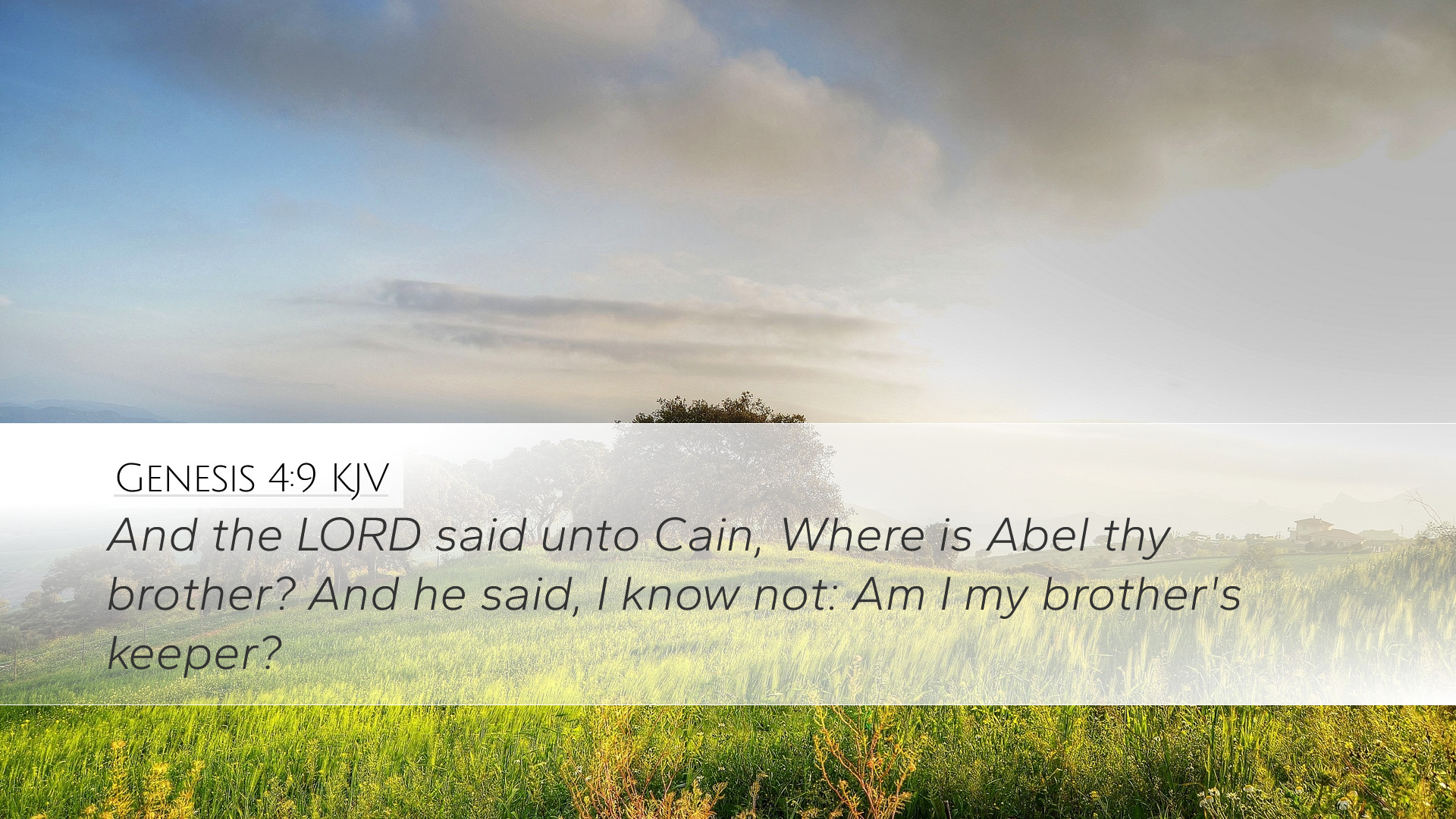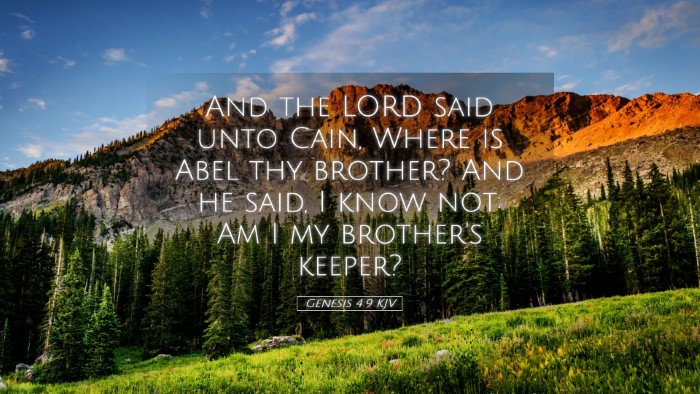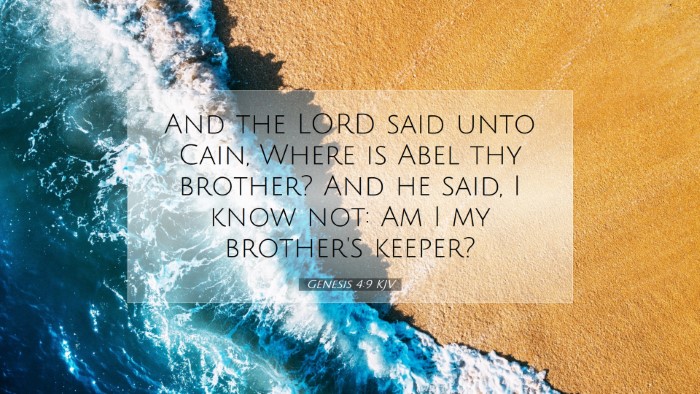Commentary on Genesis 4:9
Verse: "Then the LORD said to Cain, 'Where is Abel your brother?' He said, 'I do not know; am I my brother's keeper?'" (Genesis 4:9, ESV)
Introduction
The passage of Genesis 4:9 depicts a significant moment in the early narrative of humanity’s moral failure. Following Cain’s fratricide, God questions Cain about the whereabouts of his brother Abel. This exchange profoundly illustrates human nature, accountability, and the dynamics of sin.
Contextual Background
The events just prior to this verse detail Cain's offering to God, which was rejected, while Abel's offering was accepted (Genesis 4:3-5). This rejection incited Cain's jealousy and anger, leading to the tragic act of murder. Genesis 4:9 serves as a critical moment of divine inquiry into Cain's actions and mindset.
Matthew Henry's Perspective
According to Matthew Henry, God’s question to Cain is indicative of His grace and patience. Henry notes that God seeks to draw out Cain’s confession and repentance. This inquiry reflects God's desire to offer Cain a chance to reflect on his sin rather than simply delivering punishment. Henry emphasizes that the question “Where is Abel your brother?” invites Cain to acknowledge the weight of his actions and the resulting familial responsibility.
Albert Barnes' Commentary
Albert Barnes highlights the evasive answer provided by Cain, “I do not know; am I my brother’s keeper?” This specific response indicates a profound moral and social failing. Barnes points out that Cain’s denial signifies a refusal to take responsibility for his actions, presenting a larger commentary on human accountability. He suggests that this question from God serves to confront Cain with the seriousness of his fratricide and challenges the broader human reluctance to care for one another.
Adam Clarke's Insights
Adam Clarke provides a thorough theological analysis of the implications of the question posed by God. He argues that God's inquiries serve as a means to reveal Cain's inner turmoil and moral decay. Clarke emphasizes that Cain's question, “Am I my brother’s keeper?” is not merely rhetorical but exposes his hardened heart and lack of remorse. He points out that this phrase has endured through the ages, symbolizing the ongoing human debate about responsibility towards others.
Theological Implications
This verse serves as a touchpoint for various theological discussions, primarily surrounding the nature of sin and human relationships. The question from God showcases the omniscience of God, who knows the truth yet seeks a verbal confirmation from Cain. This act of questioning reinforces the notion that God desires a relationship where honesty prevails and where humanity acknowledges its failures.
Human Relationship and Accountability
Cain’s deflection of responsibility raises critical questions about human relationships and mutual accountability. The phrase “Am I my brother’s keeper?” encapsulates a common attitude that persists in society—the reluctance to engage in the welfare of others. This denial illustrates a deeper existential crisis about communal responsibility and love for one’s neighbor.
- Individual Accountability: Each person is called to be aware of their impact on others.
- Communal Responsibility: The biblical worldview emphasizes the importance of caring for one another.
Sin and Its Consequences
Cain’s response and subsequent actions reveal the deeper relational and spiritual alienation that sin causes. The act of murder is not only a physical offense but also a spiritual estrangement from God and creation. This marks the beginning of humanity's struggle with sin, encapsulating the theological narrative of the need for redemption.
Practical Applications
For pastors, students, and scholars, Genesis 4:9 provides profound insights that extend beyond the historical context. It invites believers to consider their moral and ethical responsibilities toward one another, highlighting the importance of community in the life of faith.
For Pastors:
- Encourage congregants to own their actions and reconcile with those they may have wronged.
- Preach on the importance of being caretakers of one another’s well-being.
For Students and Theologians:
- Explore the implications of sin as a relational breach with God and others.
- Examine how this biblical narrative can inform contemporary ethical discussions.
Conclusion
Genesis 4:9 offers rich theological and moral lessons that resonate with readers through the ages. It beckons a deep reflection on the nature of responsibility and the consequences of living in discord with God and humanity. Through the insights of prominent commentators, we gain a clearer picture of the questions this text raises about accountability, relationship, and redemption, challenging each of us to live as our brother’s keeper.


